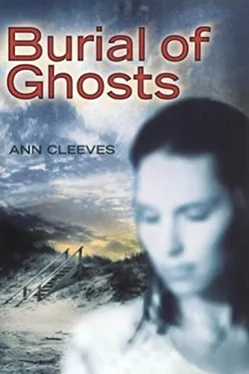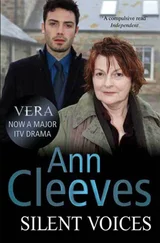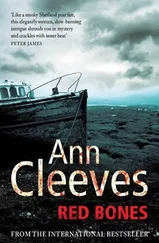At last the alley opened out into a cobbled courtyard, just big enough for two tables and chairs. Through an open door I could see a small café where a couple of ageing hippies were drinking coffee from thick yellow mugs. There was a smell of garlic, fresh coriander and joss sticks.
‘We’ll sit outside, shall we?’ Nell said in that tone which made me think again that she was used to getting her own way without question. I’d have argued to go in, just to put up a bit of a fight, but the room looked even more cramped and shadowy than the alley and I couldn’t face it. ‘What’ll you have, Lizzie? The chickpea and olive pâté is very good. And the salads are terrific.’
I said the pâté would be fine. I was opening my bag to find my purse but she’d already fished out a £10 note from her trouser pocket. ‘That’s all right. Our treat.’ And I wondered what she wanted from me. The night before she’d been sad and dreamy. Today there was a determined cheerfulness which reminded me of the lad on the street pushing the Issue . ‘Dan’ll get it, won’t you, Dan?’
He got up without a word and went inside. There were terracotta pots in the courtyard. One of them contained a buddleia with huge pointed flowers which pulled the stems down into arches. There were other plants I didn’t recognize; all had big, highly coloured blooms. The buddleia held three butterflies. They hovered over the purple flowers so close to the blossom that they seemed stuck to it. They could have flown away but they didn’t.
‘Who asked you to trace Thomas?’ Nell asked. I wasn’t expecting the question and had to think about the story I’d given her before. She looked at me with her intense trademark stare. Was this why she’d brought me here? Why was it so important now?
‘His family.’
‘Ronnie Laing, you mean?’
I paused. I couldn’t see the point in lying. ‘No. His real father was trying to trace him.’
‘Oh,’ she said. ‘Poor Thomas. He’d have been so pleased. Did he know?’
I shook my head.
‘Did you ever meet Ronnie?’ I asked.
She paused. I imagined that she was trying to compose a plausible story, but I had no reason to believe that. Perhaps she was just making an effort to remember. ‘Once,’ she said. ‘Before Thomas left home.’
‘What did you make of him?’
‘He was very pleasant. I wondered what Thomas was making all the fuss about.’ She paused again before adding, ‘But then appearances can be very deceptive, can’t they?’
Dan returned with the food. He passed a few coins of change back to Nell. ‘It wasn’t Ronnie who asked Lizzie to find Thomas,’ she said. It seemed a significant point for them both. I felt I should follow it up, but she went on to change the subject immediately, talking about her friends and their choice of universities.
‘What are your plans?’ I asked.
‘Art School,’ she said. ‘Glasgow or London.’
‘Does that depend on your results?’
‘No.’ She was matter of fact, not boasting. ‘They’ve seen my portfolio. They both want me. I just haven’t quite decided yet which I prefer.’
‘What about you, Dan? Will you stick with Ellen and Acting Out?’
‘Dan’s ready for a change too,’ she said, before he had a chance to answer.
The food was good. It should have been pleasant sitting with the sun on my neck, garden birds calling behind the wall. I couldn’t explain my unease.
‘Are the girls still in Absalom House?’ The question came out more abruptly than I’d intended and Dan seemed startled.
‘Which girls?’
‘The ones I met when I first visited there. Eastern European. They had the room next to Thomas.’
‘No,’ he said reluctantly. ‘They left last night.’
‘Where did they go?’
He shrugged. ‘I’m not sure. Ellen found a family to take them. She thought it would be better. Safer. You know Ellen. An old mother hen.’
‘What can be unsafe about Absalom House?’
He frowned. ‘Nothing. But it’s mostly lads there. And Ellen thought they needed more support than we could give.’
‘Did she find a local family to take them?’
‘I don’t know. It was my day off yesterday and she wasn’t in this morning. I haven’t had a chance to catch up. Why are you interested?’
‘Social worker’s nosiness. Humour me. How long had they been there?’
‘I’m not sure. A couple of months.’
‘Long enough to meet Thomas?’
‘Yeah, they came just before he left. But you can’t imagine they had anything to do with his death. They were quiet. Amazingly shy. The other residents called them the ghosts, because of the white scarves they wore on their heads and because they only seemed to come out at night.’
I finished my meal and then I left. I half expected Nell to stop me, but she just waved me away. They lingered there. They seemed to have nothing better to do. I looked back once and saw them caught in their sun trap, bright and gaudy in the midday light as the overblown flowers.
I planned to go back to Sea View then. Suddenly the idea of Jess fussing over me didn’t seem quite so tiresome. We’d drink tea in the shade of the kitchen with the door open to let in the breeze from the sea, and if Ray came to join us I wouldn’t even mind that. There’d be something restful about his slow movement and his silences. But as I emerged from the alley into the noise of Whitley Bay’s main shopping street, my attention was caught by a familiar figure, so out of place here that it was shocking. Like you’d bumped into your headmistress at a rave.
There was no doubt that it was Stuart Howdon moving briskly down the pavement on the other side of the street, past the banks and the building societies. I recognized the bobbing of the walk, the way he stopped occasionally to catch his breath. He was wearing a grey suit and a striped tie. Even in genteel Morpeth it would have seemed over-formal in this weather. Here, where skimpily clad holidaymakers and loud rock music spilled out of the pubs onto the wide pavements, he looked absurd. I supposed that there must be a meeting with a client, perhaps a business lunch, but even at the first glimpse I sensed something furtive about his movements. That was what I wanted to see. I disliked him and wanted to think the worst of him.
He stopped to wipe his forehead with his handkerchief and looked around him to get his bearings, then set off up the street which led to the metro station. He hadn’t seen me; he was, I thought, too preoccupied to notice. There was the rattle of a train and through the arch in the station building I saw it pull up to a stop. It was one of the brightly painted ones, advertising a chain of garden centres. Howdon put on a spurt of speed towards the ticket machines though he must have realized he didn’t have a hope of catching it. The doors opened and a horde of people pushed out. There was a school party, a group of five- and six-year-olds in bright red polo shirts shepherded by teachers and parents. It took them a long time to leave and perhaps Howdon could have caught the train if he’d had the right change for the machine, but now he hung back, content to watch. I followed his eyes and saw, framed by the metro doors, Ronnie Laing.
I was astounded. He must be here to see Howdon, but what could the two men have in common? I had found it hard to believe that Ronnie had been a friend of Philip’s. This connection made even less sense.
Ronnie looked cool and dapper waiting for the sea of red, chattering children to allow him through. I stood for a moment, trying to gauge my reaction to him. No excitement. No desire to touch him. That infatuation had been part of the illness, as I’d suspected. There was something disappointing in the coolness of my response. Did it mean that if I continued with the treatment I’d never be excited by a man again? I was still brooding about that when I realized how exposed I was, and turned quickly and walked away down a street which faced directly onto the station. On the corner was an old-fashioned launderette with huge cream machines, and posters for washing powder which looked as if they’d been there for forty years. There was a long window which gave a clear view of the station façade. An elderly woman, so shrivelled she was as small as a monkey, must have been in charge of the place. She was asleep on a chair behind a Formica counter. She breathed gently and regularly, like a baby sleeping. When I went in her eyelids fluttered but she didn’t wake. No one else was there.
Читать дальше












